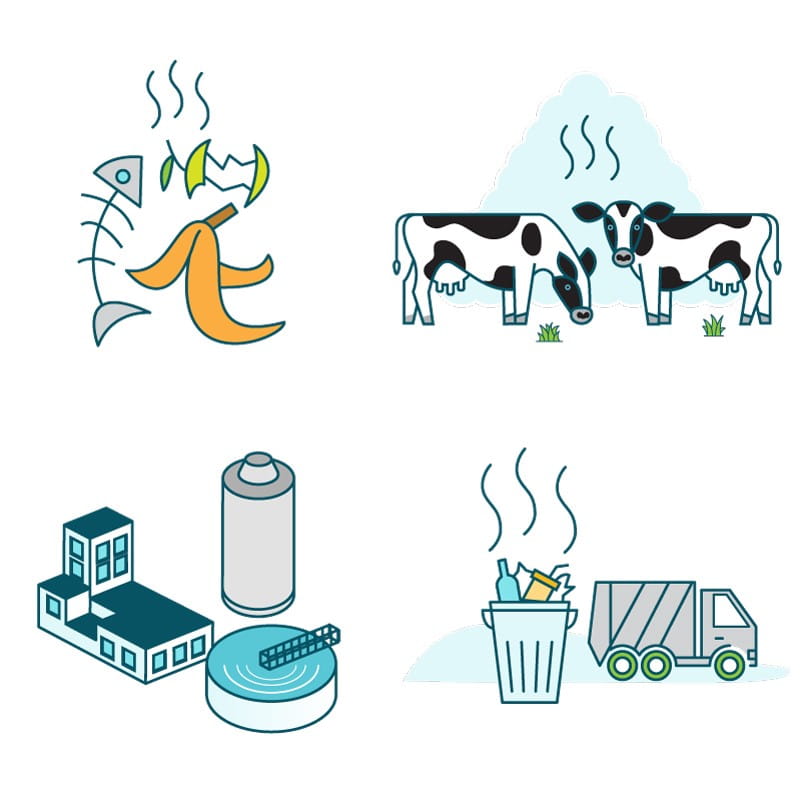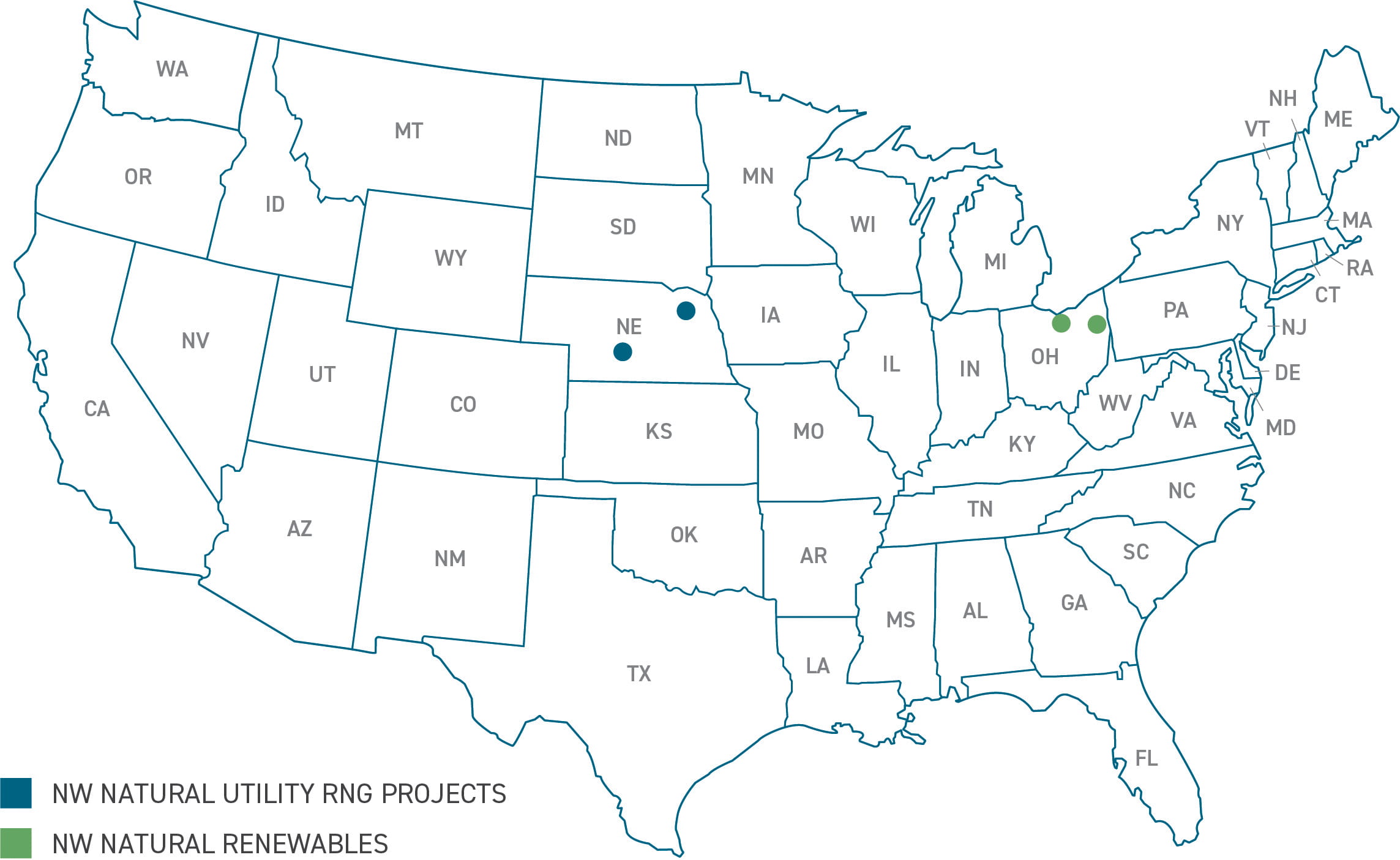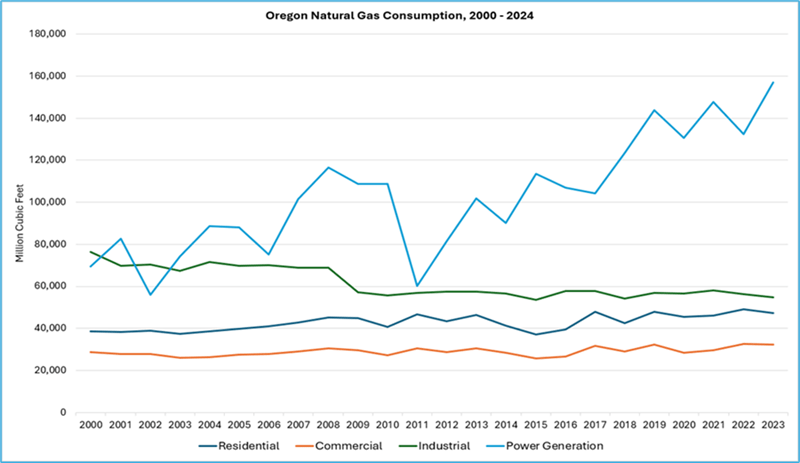Shifting from fossil fuels to renewable resources and new technologies is at the center of our goal to evolve our energy supply and address climate change. Do we have a lot of work ahead? Yes. We are at the beginning stages of developing renewables for the gas system.
As our nation’s electric system continues to work to increase wind and solar generation from 14% annually[1]U.S. Energy Information Administration, “Electricity Explained” Available at: https://www.eia.gov/energyexplained/electricity/electricity-in-the-us.php, we also need to aggressively accelerate development of renewables for our pipeline networks.
A diverse energy system – with renewable electrons delivered over wires and renewable molecules delivered underground provides a hedge against potential reliability risks while supporting shared climate goals.
What is renewable natural gas?
Renewable natural gas (RNG) is not a fossil fuel and does not add more carbon dioxide into the atmosphere. RNG is derived from biogas, which is produced from decomposing organic waste from landfills, agricultural waste and wastewater from treatment facilities, that has been captured and cleaned for the pipeline.[2]EPA, “An Overview of Renewable Natural Gas from Biogas,” 2021, available at: https://www.epa.gov/sites/default/files/2021-02/documents/lmop_rng_document.pdf
Our renewable natural gas projects
Today our system is making it possible for the first RNG projects in our region to deliver their low-carbon fuel, primarily for the transportation sector. We’ve also started delivering small volumes of RNG to our customers. We have a team focused exclusively on securing supplies of RNG for our customers. It’s an important step on our journey to transition our business, but there’s far more to do and we’re going to need policy support to get there.Agricultural Waste
Junction City Clean Fuels: The Junction City facility in Oregon uses locally sourced cow manure and excess agricultural residues to produce RNG. It originally began sending RNG through NW Natural pipelines in December 2021. The facility supports the local economy and helps farmers manage agricultural waste, reduce expenses and protect local air and water quality.
Food Waste
BP Products North America: NW Natural is purchasing Renewable Thermal Certificates (RTCs) generated by a facility in the Western U.S. that produces RNG from organic waste which includes food scraps, liquid waste and manufacturing food waste.
Landfill
BP Products North America: Through a long-term agreement with BP Products North America, NW Natural is purchasing the environmental attributes, or Renewable Thermal Certificates (RTCs), generated by landfills in New Jersey and North Carolina.
Wastewater
Senate Bill 98
Find out about the groundbreaking Oregon legislation that makes this progress possible.
SB 98 details
Answers to customer questions about RNG
Is RNG in use today?
Is there enough RNG?
Is all of that RNG available now for residential gas use?
What role does RNG play in the clean energy transition?
What progress has been made to purchase RNG for customers?
How has regulatory uncertainty affected NW Natural's ability to purchase RNG?
Will NW Natural continue to pursue RNG?
How does NW Natural evaluate where to purchase RNG from?
Is RNG considered a "carbon neutral" or "zero-carbon" resource?
Why is NW Natural pursuing RNG for the gas system and not electrification?



